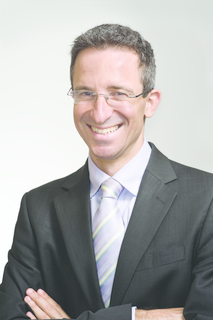A Quote by Francois de La Rochefoucauld
Pity is often a reflection of our own evils in the ills of others. It is a delicate foresight of the troubles into which we may fall.
Related Quotes
Pity is a sense of our own misfortunes in those of another man; it is a sort of foresight of the disasters which may befall ourselves. We assist others,, in order that they may assist us on like occasions; so that the services we offer to the unfortunate are in reality so many anticipated kindnesses to ourselves.
In general it may be said that the things which we take for granted without inquiry or reflection are just the things which determine our conscious thinking and decide our conclusions. And these habitudes which lie below the level of reflection are just those which have been formed in the constant give and take of relationship with others.
Compassion allows us to use our own pain and the pain of others as a vehicle for connection. This is a delicate and profound path. We may be adverse to seeing our own suffering because it tends to ignite a blaze of self-blame and regret. And we may be adverse to seeing suffering in others because we find it unbearable or distasteful, or we find it threatening to our own happiness. All of these possible reactions to the suffering in the word make us want to turn away from life.
The numerous evils to which individual persons are exposed are due to the defects existing in the persons themselves. We complain and seek relief from our own faults; we suffer from the evils which we, by our own free will, inflict on ourselves and ascribe them to God, who is far from being connected with them!
All ills spring from some vice, either in ourselves or others; and even many of our diseases proceed from the same origin. Remove the vices; and the ills follow. You must only take care to remove all the vices. If you remove part, you may render the matter worse. By banishing vicious luxury, without curing sloth and an indifference to others, you only diminish industry in the state, and add nothing to men's charity or their generosity.
I have now lived long enough to know that, whatever our situation, our troubles melt and disappear like frost in the morning sun when we dwell upon our blessings rather than our disappointments. No matter how pessimistic one's view may become of the times and the seasons, we can always fall back on special friendship, on faithful, personal love, and on simple, true dealings in our own personal lives.
There is not any present moment that is unconnected with some future one. The life of every man is a continued chain of incidents, each link of which hangs upon the former. The transition from cause to effect, from event to event, is often carried on by secret steps, which our foresight cannot divine, and our sagacity is unable to trace. Evil may at some future period bring forth good; and good may bring forth evil, both equally unexpected.
I am fond of reminding my yoga students of the saying "It takes one to know one" when they become lost I condemnation and judgment of others. The world that we perceive is a reflection of our own states of mind and reveals our own level of consciousness. The world is little more than a Rorschach blot in which we see our own desire systems projected. We see what we want to see. (116)
That this is the source of our fellow-feeling for the misery of others, that it is by changing places in fancy with the sufferer, that we come either to conceive or to be affected by what he feels, may be demonstrated by many obvious observations, if it should not be thought sufficiently evident of itself. When we see a stroke aimed and just ready to fall upon the leg or arm of another person, we naturally shrink and draw back our own leg or our own arm; and when it does fall, we feel it in some measure, and are hurt by it as well as the sufferer.




































